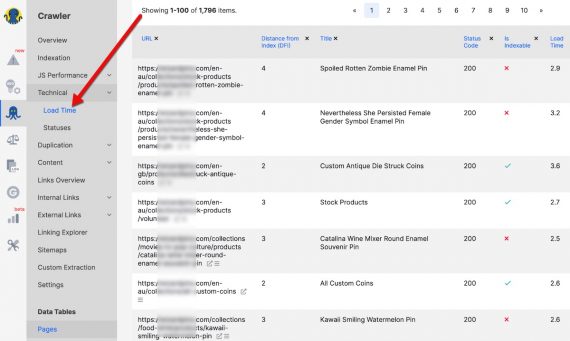How to Use Web Crawlers for SEO
[ad_1]
An online crawler instrument emulates search engine bots. Internet crawlers are indispensable for SEO. However main crawlers are so complete that their findings — lists of URLs and the assorted statuses and metrics of every — will be overwhelming.
For instance, a crawler can present (for every web page):
- Variety of inside hyperlinks,
- Variety of outbound hyperlinks,
- HTTP standing code,
- A noindex meta tag or robots.txt directive,
- Quantity of non-linked textual content,
- Variety of natural search clicks the web page generated (if the crawler is linked to Search Console or Google Analytics),
- Obtain velocity.
Crawlers may group and phase pages based mostly on any variety of filters, similar to a sure phrase in a URL or title tag.
There are lots of high quality web optimization crawlers, every with a novel focus. My favorites are Screaming Frog and JetOctopus.
Screaming Frog is a desktop app. It provides a restricted free model for websites with 500 or fewer pages. In any other case, the associated fee is roughly $200 per 12 months. JetOctopus is browser-based. It provides a free trial and prices $160 per thirty days. I take advantage of JetOctopus for bigger subtle websites and Screaming Frog’s free model for smaller websites.
Regardless, listed here are the highest six web optimization points I search for when crawling a website.
Utilizing Internet Crawlers for web optimization
Error pages and redirects. The primary and foremost purpose for crawling a website is to repair all errors (damaged hyperlinks, lacking parts) and redirects. Any crawler will provide you with fast entry to these errors and redirects, permitting you to repair every of them.
Most individuals give attention to fixing damaged hyperlinks and neglect redirects, however I like to recommend fixing each. Inside redirects decelerate the servers and leak hyperlink fairness.
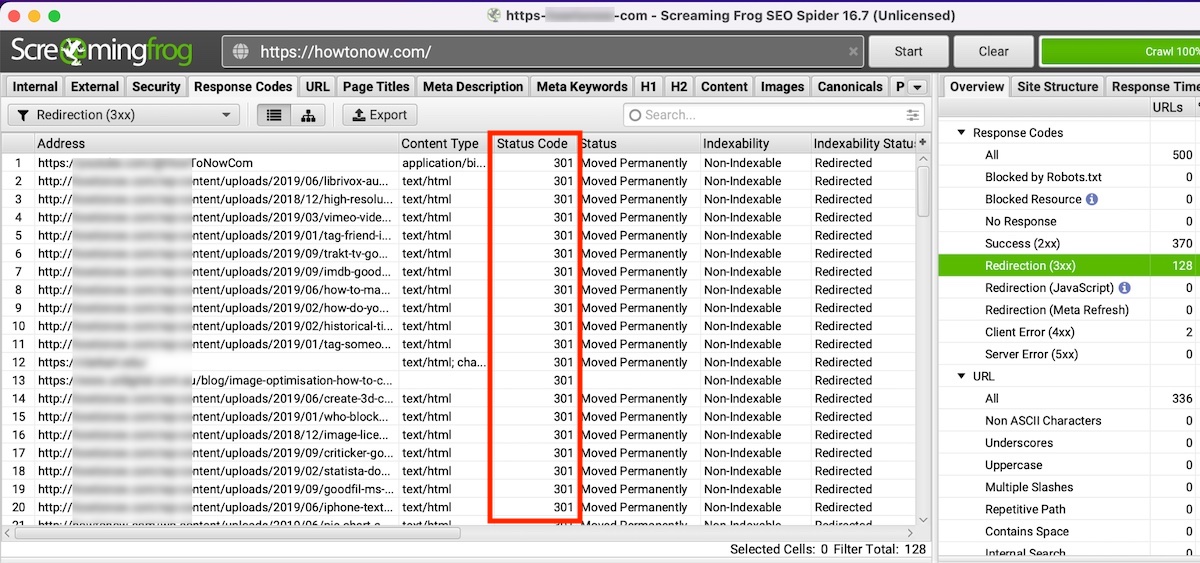
Screaming Frog gives an inventory of all URLs returning a 301(redirect) standing code — moved completely. Click on picture to enlarge.
—
Pages that can not be listed or crawled. The subsequent step is to verify for unintentional blocking of search crawlers. Screaming Frog has a single filter for that — pages that can not be listed for numerous causes, together with redirected URLs and pages blocked by the noindex meta tag. JetOctopus has a extra in-depth breakdown.
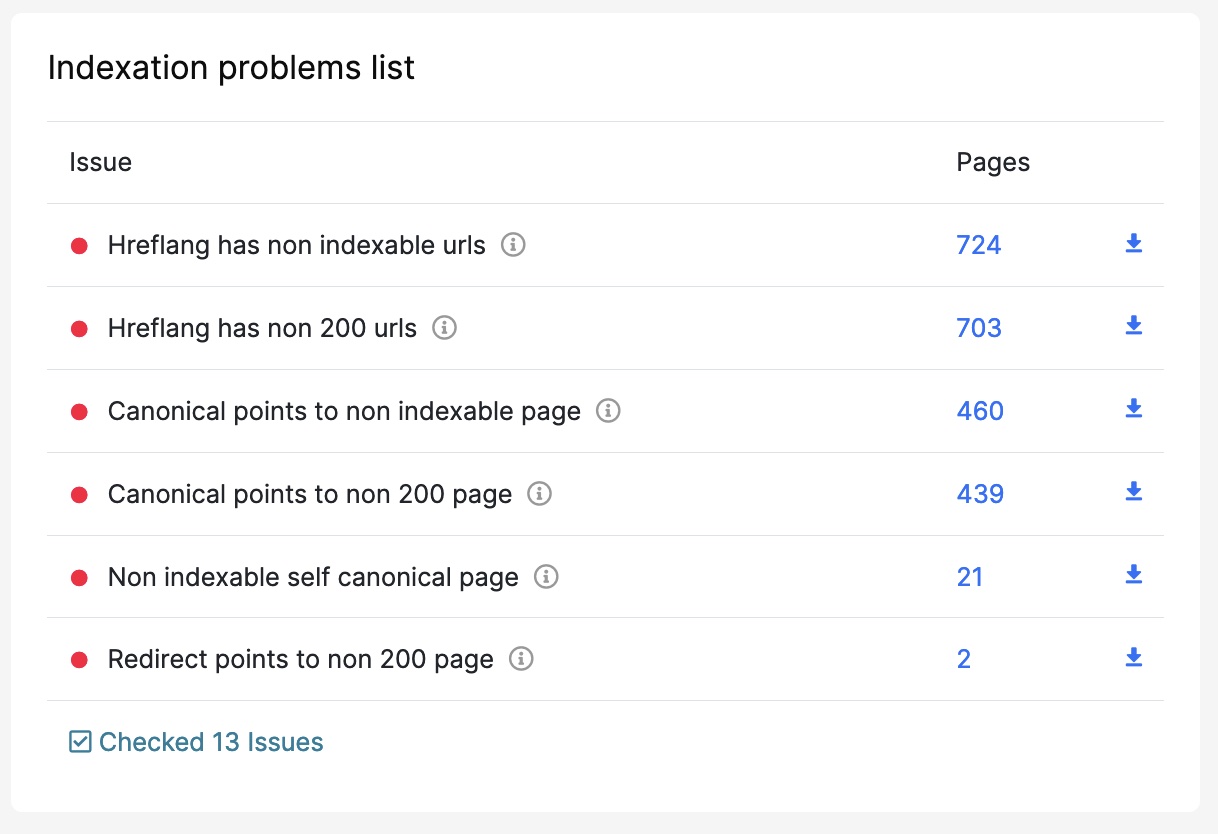
JetOctopus gives a breakdown of pages that can not be listed or crawled. Click on picture to enlarge.
—
Orphan and near-orphan pages. Orphan and poorly interlinked pages should not an web optimization downside except they need to rank. After which, to extend the possibilities of excessive rankings, guarantee these pages have many inside hyperlinks. An online crawler can present orphan and near-orphan pages. Simply type the checklist of URLs by the variety of inside backlinks (“Inlinks”).
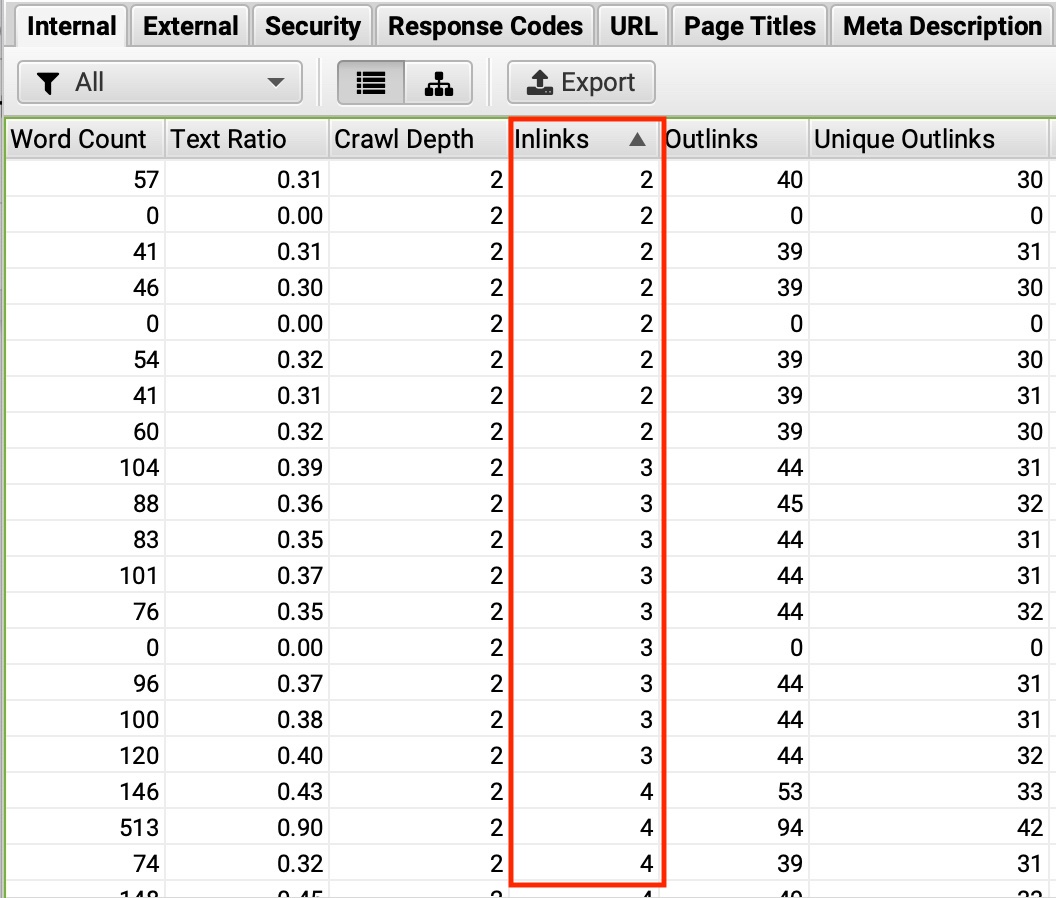
The report by Screaming Frog is URLs sorted by the fewest inbound hyperlinks. Click on picture to enlarge.
—
Duplicate content material. Eliminating duplicate content prevents splitting hyperlink fairness. Crawlers can establish pages with the identical content material in addition to an identical titles, meta descriptions, and H1 tags.
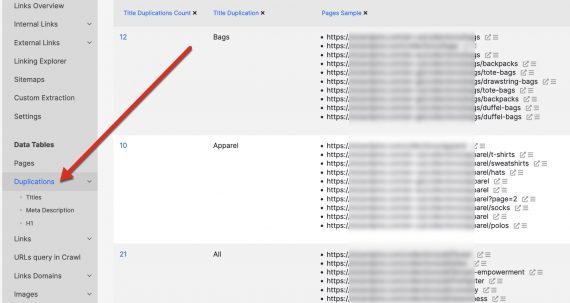
JetOctopus identifies pages with duplicate titles, meta descriptions, and H1 tags. Click on picture to enlarge.
—
Skinny content material. Pages with little content material should not hurting your rankings except they’re pervasive. Add significant textual content to skinny pages you need to rank or, in any other case, noindex them.
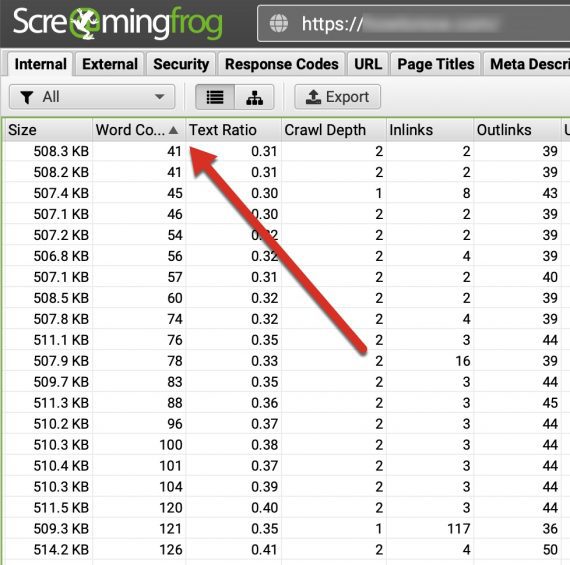
Screaming Frog lists the variety of phrases on every web page, indicating potential skinny content material. Click on picture to enlarge.
—
Sluggish pages. JetOctopus has a pre-built filter to type (and export) slow pages. Screaming Frog and most different crawlers have related capabilities.
Superior Findings
After addressing the six points above, give attention to:
- Photos lacking alt texts,
- Damaged exterior hyperlinks,
- Pages with too quick title tags (longer tags proved extra rating alternatives),
- Pages with too few outbound inside hyperlinks (to enhance guests’ shopping journeys and reduce bounces),
- Pages with lacking H1 and H2 HTML headings,
- URLs included in sitemaps however not in inside navigation.
[ad_2]
Source link


